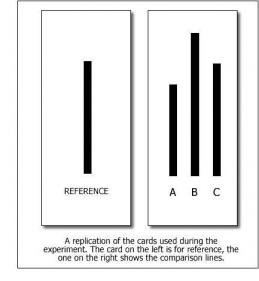by Fabio Tollon 
In a previous article I argued that, when it comes to our moral appraisal of emerging technologies, the best normative framework to use is that of virtue ethics. The reasons for this were that virtue ethics succeeds in ways that consequentialist or deontological theories fail. Specifically, these other theories posit fixed principles that seem incapable of accommodating the unpredictable effects that emerging technologies will have not only on how we view ourselves, but also on the ways in which they will interact with our current social and cultural practices
However, while virtue ethics might be superior in the sense that it is able to be context sensitive in way that these other theories are not, it is not without problems of its own. The most significant of these is what is known as the ‘situationist challenge’, which targets the heart of virtue ethics, and argues that situational influences trump dispositional ones. In this article I will defend virtue ethics from this objection and in the process show that it remains our best means for assessing the moral effects of emerging technologies.
So, what exactly is the situationist challenge contesting? In order for any fleshed-out theory of virtue to make sense, it must be the case that something like ‘virtues’ exist and are attainable by human beings, and that they are reliably expressed by agents. For example, traits such as generosity, arrogance, and bravery are dispositions to react in particular ways to certain trait-eliciting circumstances. If agents do not react reliably in these circumstances, it makes little sense to traffic in the language of the virtues. Calling someone ‘generous’ makes no sense if they only acted the way that they did out of habit or because someone happened to be watching them.
One example of the influence of social factors comes from what is known as Asch’s conformity experiment. This was an experiment run in the 1950s by social psychologist Salomon Asch, with the intention of testing the extent to which social information could influence individual judgement. In the experiment, participants were taken to a room where they were joined by between six and eight other people, who they thought were also participants, but were in fact confederates of the experimenters. The experimenter then showed all of those in the room two cards. The first had a line of a specific length, and the second had three lines. The experimenter then asked each participant which of the three lines in the second card was the same length as the one on the first card (see the image below).

It is relatively obvious which of the lines would be the correct answer. However, in each case, the participant was always the last one to give their answer, and so the confederates would answer first. Each round was composed of 18 trials, and in 6 of these trials confederates gave the correct answer, but in the rest, they unanimously agreed on the “wrong” line. Over the course of all the trials, over 35% of the participants were influenced by the majority opinion. This is quite an incredible result, considering that, first, the stimulus in question was not ambiguous in any way, and second, in the cases where subjects were left to their own devices, they made no mistakes whatsoever. Thus, we have a case of significant social influence. To bring this back to our discussion on moral virtues: it seems we have an example here where situational influences unduly influenced the participants’ responses.
The situationist challenge is essentially a complaint about the fragility of individual dispositions, and the depressing ease with which situational influences better account for our behaviour (like in the conformity study above) than any talk about virtues. This kind of worry is especially pernicious in the age of the internet, where we are exposed to massive amounts of social information on a daily basis, from all different kinds of people, some who are genuinely trustworthy, and others who might have nefarious intentions. There is a very real worry that this kind of information overload can lead to the reduced autonomy of individuals and undermine their ability to act virtuously.
However, there are a few responses that the virtue ethicist can make against such complaints. The first comes from being a bit more nuanced in our understanding of individual character and its associated psychology by distinguishing between continence, incontinence, vice and virtue.
The continent person eventually does the right thing but is nonetheless conflicted when doing so. The incontinent person is also conflicted but ends up doing the wrong thing at the end of the day. The vicious person does the wrong thing unstintingly, and the virtuous person does the right thing unstintingly. Thus, we might respond to this challenge to virtue ethics by stating that just because we observe that virtue is a rare trait, this does not necessarily mean that those who act in vicious ways are doing so simply out of vice: they might be merely incontinent. When evaluating studies that claim to show that we lack dispositional virtues (such as the famous Milgram studies in obedience) we should be attuned to whether subjects exhibited displays of emotional distress when performing blameworthy actions (and in the case of the Milgram studies, this was indeed what happened). If so, we can say that they were incontinent, and thus we need not give up the perspective of virtue ethics, as it provides us with a coherent way of describing what might be going on.
The second response to the situationist challenge consists in contesting the implications of the data coming from research in social psychology. Indeed, it does seem as though there is a substantial amount of evidence from both social psychology and behavioural economics that suggests we are susceptible to biases and the use sometimes irrational heuristics. However, these situational influences and cognitive biases are part of what we might abstractly call “human nature”, and therefore must play a role in our moral theorizing. We are by our nature imperfect decision-makers, and it is therefore predictable that we will err in our reasoning and in our actions. This does mean that we are somehow, at base, irrational: we can reflect on our own fallibility and attempt to seek out circumstances that are conducive to our own flourishing, by avoiding precisely those ‘temptations’ that we know might lead us astray.
For example, think of our insatiable appetite for sweet foods. From an evolutionary perspective this trait makes sense, as the relative scarcity of such foods in our past, combined with their immense nutritional value, allowed this disposition to flourish. Modernity, however, places before us a plethora of sugary snacks that we would do better to avoid. Doing so is easier said than done, but a common strategy is to not go shopping when hungry: this reduces the temptation to buy high glucose foods (which provide a spike in blood sugar that makes us feel good for a short time but can end up increasing hunger levels later on). Thus, if you know you have a sweet tooth, this is a simple strategy to overcome your potential “irrationality” when confronted by this kind of temptation.
This suggests a shift in the way that we ought to think about the environments that we find ourselves in. Instead of viewing ourselves as passive consumers of circumstance, we should instead see things as though we are active producers of situations. This kind of approach is insightfully argued for by Mark Alfano, and he claims that instead of
simply seeking and avoiding situations based on their virtue-conducive properties, we may take a more active role and create (both for ourselves and for others) situations with an eye to their virtue-conduciveness
To go back to the example of sugary foods: we know refined sugar is bad for our health, and thus we can implement strategies to curate our environments in such a way that helps us avoid temptation by, in a sense, structurally disabling the temptation in the first place. For example, one might try to cook all one’s meals at home (which, again, I know is easier said than done).
Thus, the response to the situationist challenge essentially comes down to the claim that yes, there are myriad social influences on our behaviour and therefore our character, but that instead of feeling threatened by this, we can instead use it to our advantage. By paying careful attention to these contextual factors, we can design systems that promote human flourishing. Straightforwardly enough, this kind of approach can be applied to technology, as new technologies often influence our habits and ways of interacting with one another. Paying careful attention to the kinds of novel situations that technologies bring about can shed light on the potential moral consequences they might have. There is much more that could be said about this, and perhaps next time I’ll take a look at some specific technologies and investigate what virtues they promote or inhibit. Doing so now, however, would take me beyond the scope of this piece. In any case, I think I’ve gone on for long enough.
